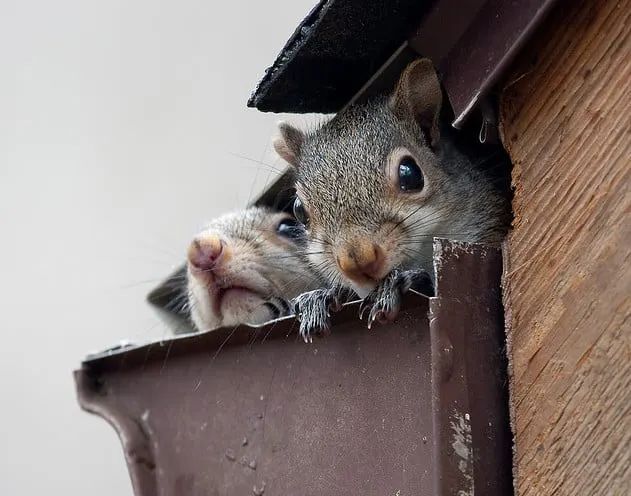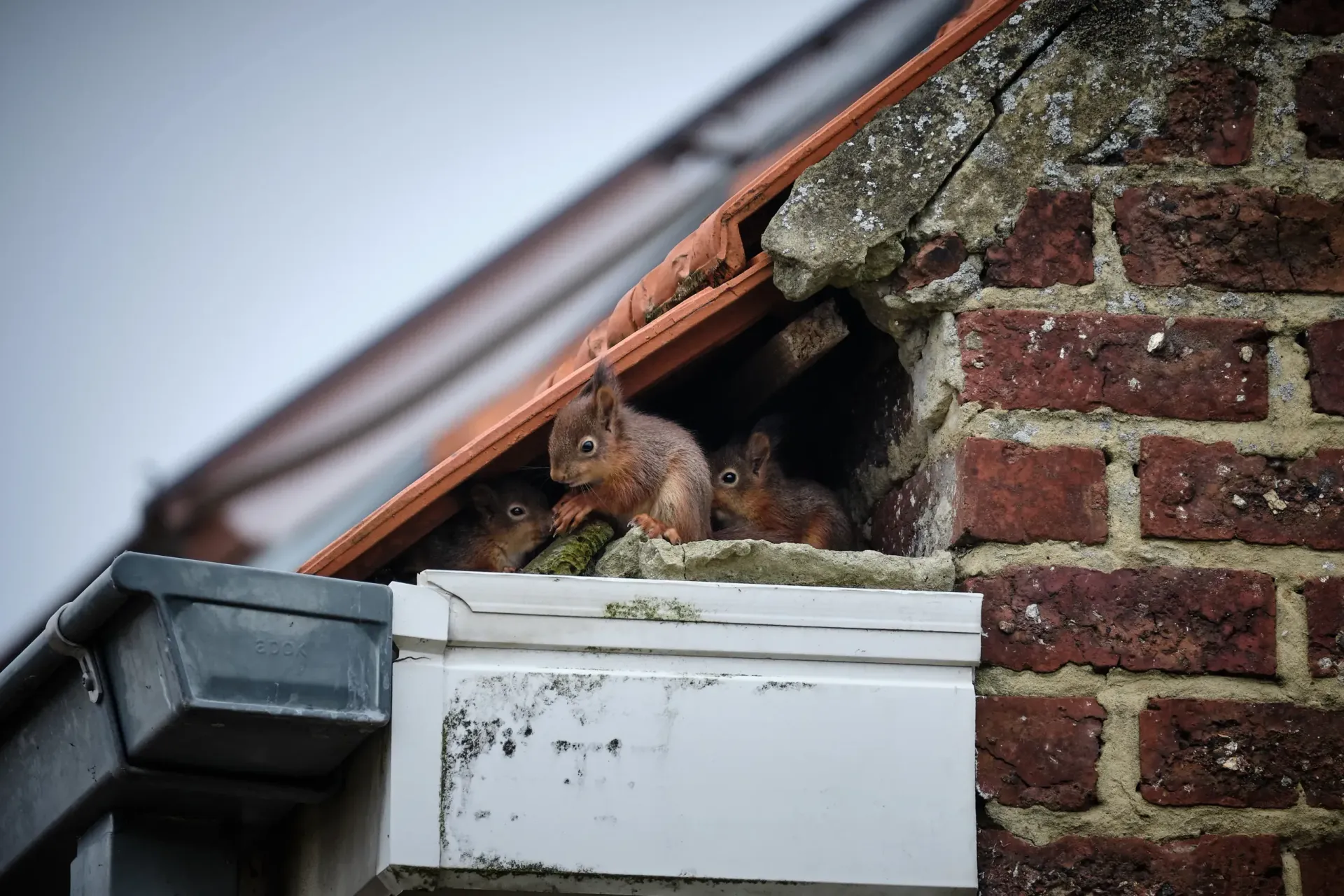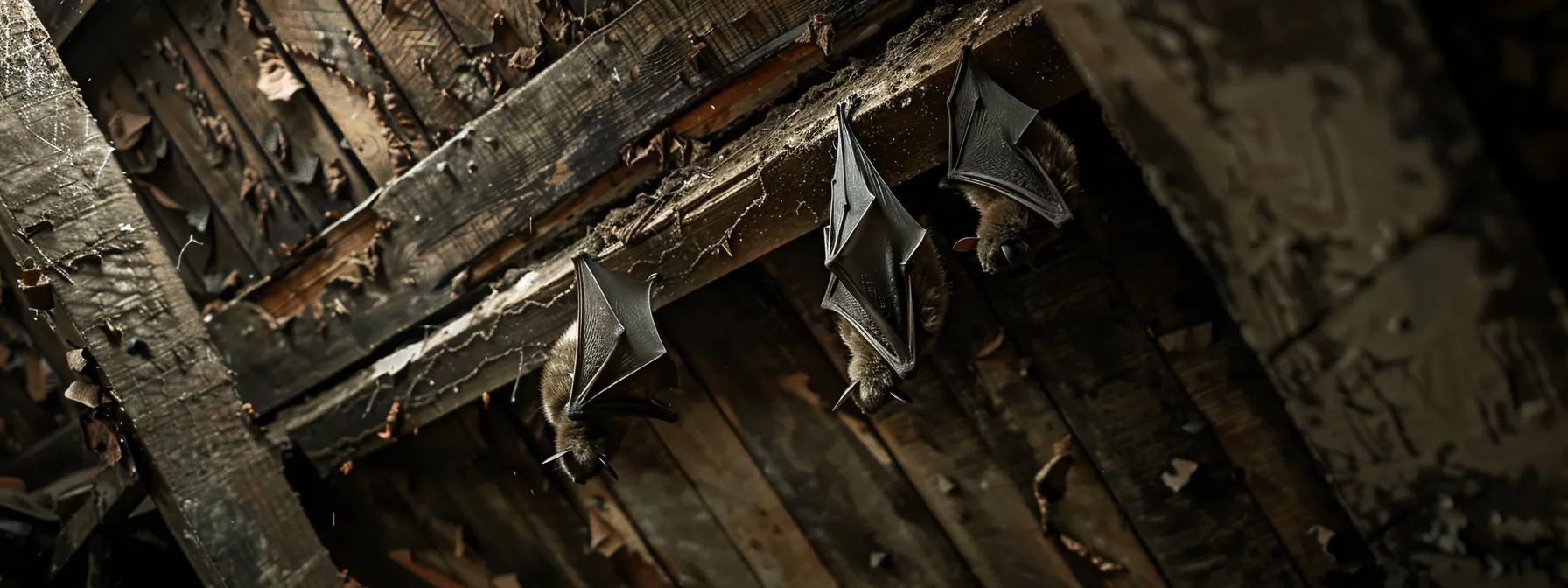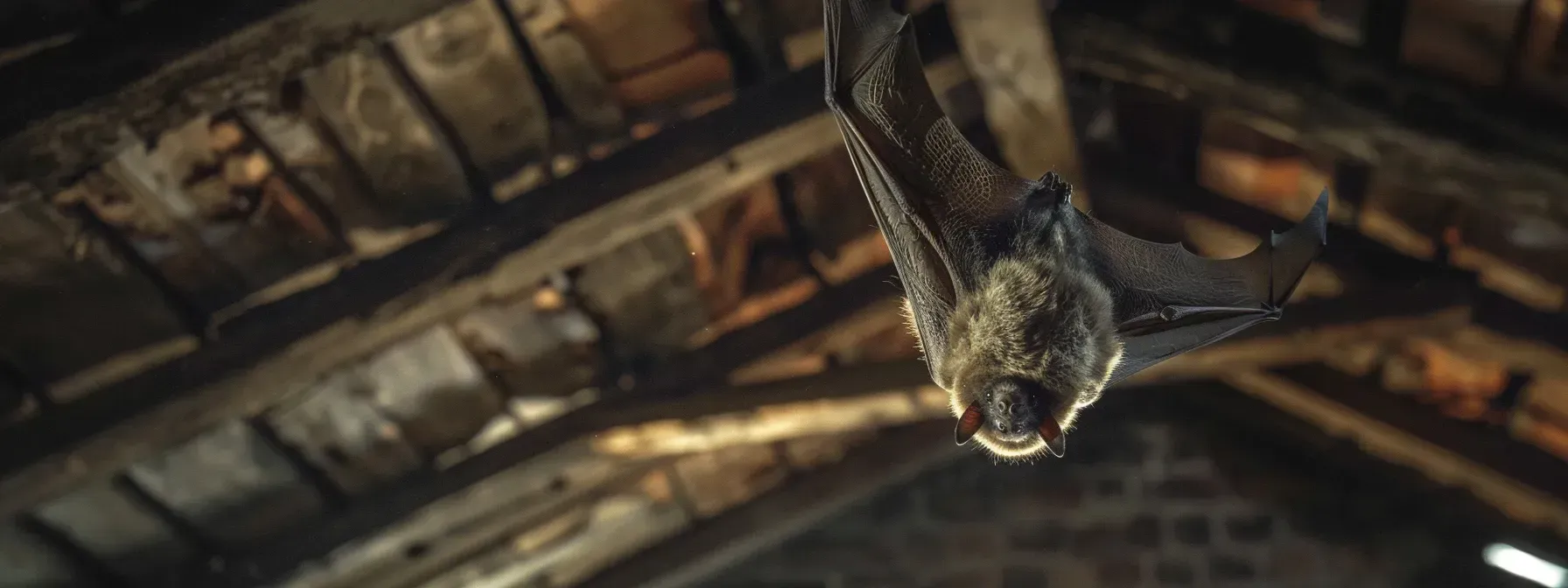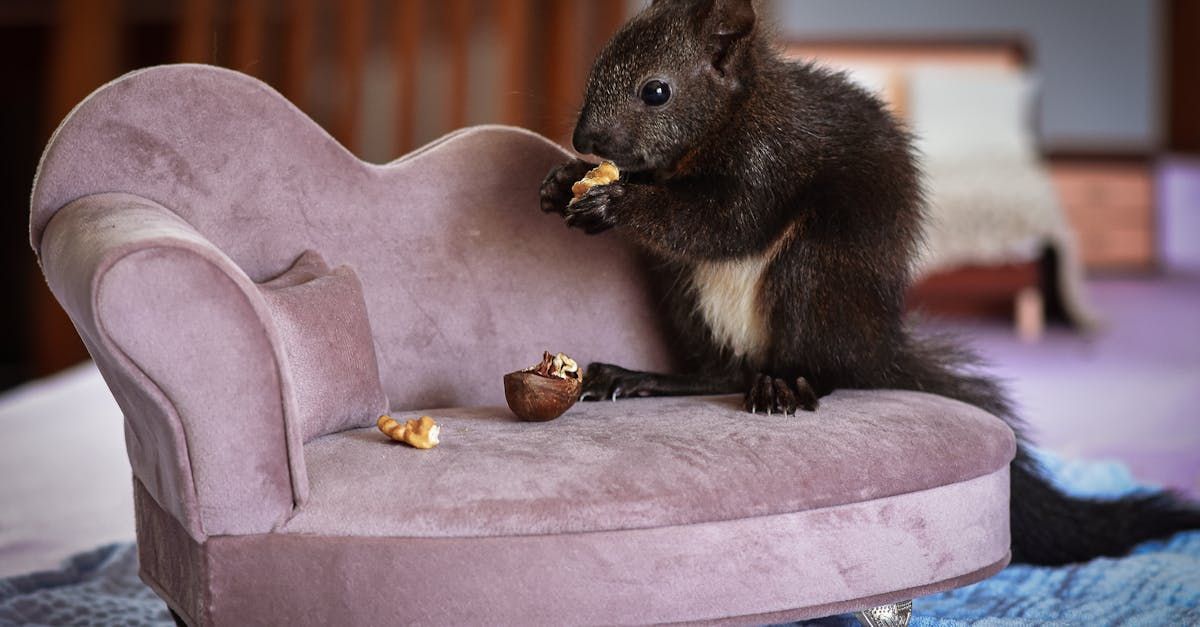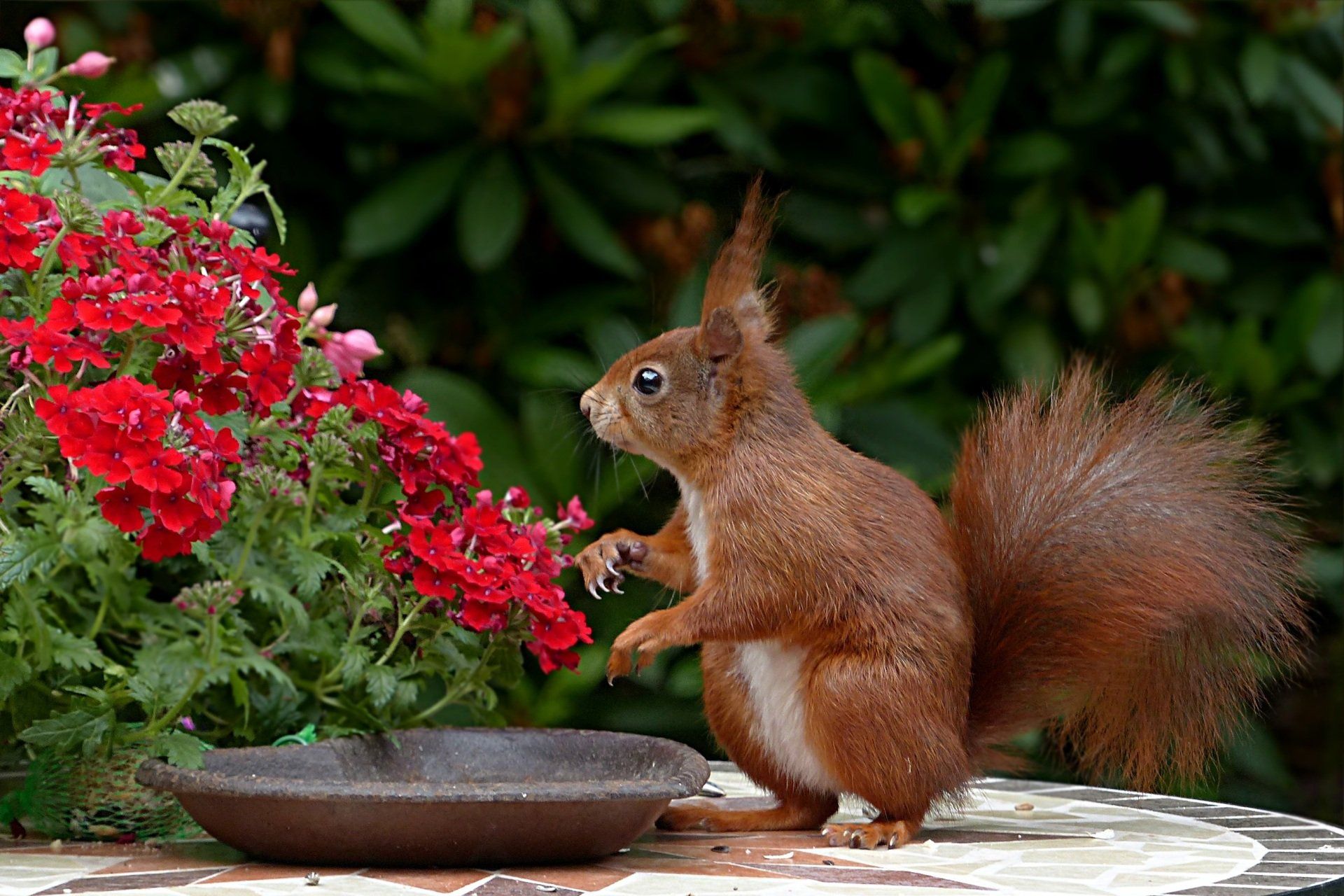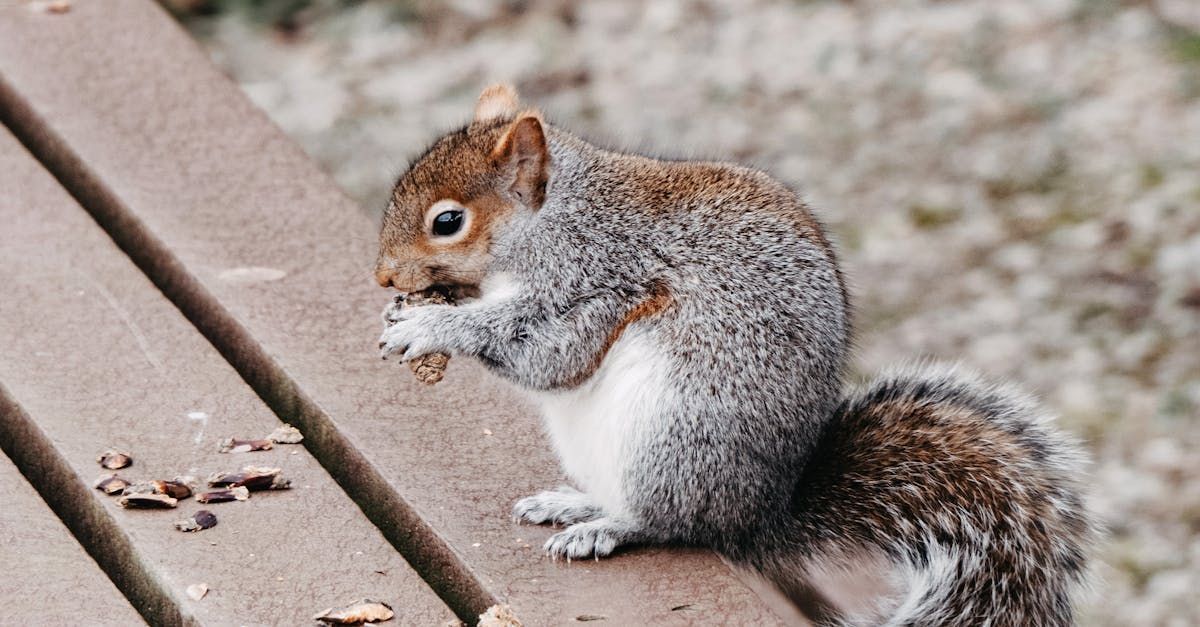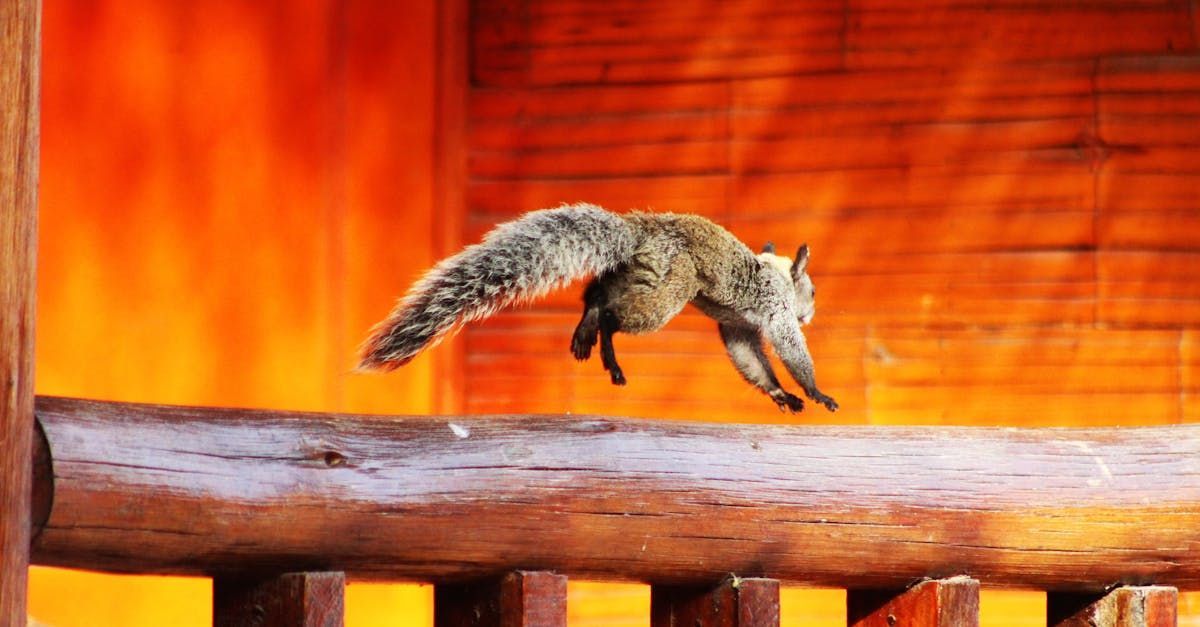5 Problems Squirrels Cause and How to Fix Them
Though they may not seem like it, squirrels are notorious for being destructive pests.
At Catch A Critter - Wildlife Removal Specialists in Cumming, GA, we've seen firsthand the destruction these furry critters can cause, when they invade attics, crawl spaces, and walls. In this article, we'll explore the various ways squirrels can impact your property and share effective squirrel removal strategies.
Keep reading to learn how Catch A Critter can help protect your home from these pesky invaders.
What Kind of Damage Do Squirrels Cause to Your Home’s Structure?
A squirrel removal service becomes vital when you see how much damage these little creatures can cause to your home's structure. Squirrels can wreck havoc on your home's structure, causing extensive damage that often goes unnoticed until it's severe. Unlike a mouse or insect infestation, squirrels can quickly create large entry points and nesting areas in your attic or walls, attracting more wildlife.
Why Squirrels Chew on Wood
Squirrels have sharp teeth that grow continuously, so they chew on things to keep them in check. This means they will gnaw on almost anything, including the wood in your home. If you have wooden decks, siding, or even beams in your attic, squirrels might target them to sharpen their teeth.
How This Leads to Structural Damage
Squirrels are particularly fond of gnawing on roof eaves, fascia boards, and soffits.
Over time, this gnawing leads to structural damage from gnawing on wood. For example, a squirrel might chew through the wood in your attic, creating a hole that lets in rainwater. This can lead to water damage and even mold, which can cost a lot to repair.
We’ve also seen instances where extensive gnawing has weakened support beams, and rafters, leading to costly repairs.
Why Are Squirrels Bad for Your Garden?
If you care about your garden, you know how frustrating it is to see it destroyed.
Squirrels are notorious diggers, often uprooting newly planted bulbs and seedlings, and munching on them. They'll tear through your lawn searching for acorns and nuts, leaving unsightly holes and damaged grass. They will also ruin your flower beds and make it tough to keep anything alive. For instance, you might plant tulips in the fall, only to find them dug up and eaten by squirrels before they have a chance to bloom.
This not only wrecks your garden but also wastes your time and money.
Real-Life Examples of Garden Damage
Squirrels might seem harmless when they’re running around the yard, but they can cause a lot of damage in a short time.
We've encountered numerous cases where tree squirrels have stripped bark from young trees, causing severe damage or even killing the plants. They're also fond of raiding bird feeders, which can attract more squirrels to your property and exacerbate the problem.
The problems squirrels cause in your garden can escalate quickly if not addressed.
Here's a summary of the main issues squirrels cause:
- Digging up bulbs and seedlings
- Damaging lawns with holes
- Stripping bark from trees
- Raiding bird feeders
- Using gardens to access homes
Protecting your garden from the damage these critters cause often means taking extra steps to secure your plants, like using squirrel-proof fencing or planting bulbs that squirrels avoid. At Catch A Critter, we offer humane solutions to protect your garden from squirrel damage.
Our methods focus on exclusion and prevention, ensuring your plants stay safe without harming the wildlife
How Do Squirrels Create Electrical Hazards in Your Home?
One of the most dangerous problems squirrels cause is when they chew on electric wires. Squirrels don’t know the difference between a stick and a wire, so they’ll gnaw on both. This behavior can strip away the protective coating on electrical wires, exposing live current, which then could lead to short circuits, power outages, and even house fires.
The Risk of Electrical Fires
The attic is a common area for squirrels to create electrical hazards.
They often enter through small openings in the roof or eaves, making their way to this warm, quiet space. Once inside, they can chew through wiring for lighting fixtures, HVAC systems, and other electrical components. This damage is similar to what a raccoon might cause, but squirrels can access even smaller spaces.
In addition to direct wire damage, squirrels can create indirect electrical hazards. They often build nests near electrical components, using insulation and other flammable materials. This increases the risk of electrical fires, especially if sparks occur from damaged wiring.
Keeping squirrels out of your home is key to preventing these hazards. At Catch A Critter, we take squirrel-related electrical hazards seriously. We not only remove the squirrels but also inspect for and report any potential electrical damage we find during the process.
This comprehensive approach helps ensure your home's safety and prevents future infestations.
Can Squirrels Affect Your Pets’ Health?
While not as dangerous as some other wildlife species, squirrels can still cause problems for dogs and cats. Squirrels can carry ticks and fleas, which can then be passed on to your pets. If you have dogs or cats that spend time outside, they could pick up these parasites and bring them into your home.
Health Risks to Pets and Humans
Ticks and fleas carried by squirrels, especially Grey Squirrels, are more than just bothersome pests.
They pose a health risk by transmitting diseases to pets and humans alike. For example, a flea bite can cause severe itching and skin infections, while ticks can transmit Lyme disease, which can be dangerous to both pets and humans. While the risk is lower compared to pests like mosquitoes, it's still a concern that requires attention from pet owners and pest control professionals alike. Keeping squirrels away from your yard is one way to reduce the risk of your pets getting these parasites.
You might want to use tick and flea treatments on your pets, but controlling the squirrel population around your home can also help. Squirrels can also indirectly affect your pets' health by contaminating their food or water sources. If they access your pet's outdoor food bowls, they may leave behind feces or urine, which can contain harmful bacteria.
This is particularly concerning for pets that spend a lot of time outdoors.
Stress and Physical Harm on Pets
Squirrels may seem harmless, but when cornered or threatened, they can become aggressive.
We’ve encountered cases where dogs or cats have been scratched or bitten by tree squirrels, leading to infections or injuries that required veterinary care. Moreover, the presence of squirrels can cause stress for some pets, especially if they're constantly chasing them up trees or around the yard.
This can lead to exhaustion, injuries from falls, or even heatstroke in hot weather.
How Do Squirrels Spread Disease in Your Home?
Squirrels might look clean, but they can carry various pathogens in their bodies, which they may transmit through their droppings, urine, and even bites. When squirrels move around your home, and get into your attic or walls, they leave behind these droppings. The risk increases significantly when squirrels build nests in attics or chimneys, creating concentrated areas of feces. They often use insulation, wires, and other household materials to build nests, which become breeding grounds for bacteria and parasites.
The Risk to Your Family’s Health
The pathogens present in squirrel nests can become airborne when disturbed, potentially infecting humans and pets through inhalation or ingestion. When squirrels abandon these nests, they leave behind contaminated materials that continue to pose health risks. The problem often starts in areas like chimneys or attics but can spread throughout the house if left unchecked.
Here's a summary of the ways squirrels can spread disease in your home:
- Contamination through droppings and urine
- Infected nesting materials
- Introduction of disease-carrying parasites
- Direct transmission through bites or scratches
- Airborne pathogens from disturbed droppings
If you suspect that squirrels have been in your home, it’s important to clean up any droppings and urine as soon as possible and to get professional help to remove the squirrels. At Catch A Critter, we understand the health risks associated with squirrel infestations and offer comprehensive removal and cleaning services. This is why our process includes thorough sanitization of affected areas to eliminate disease-causing pathogens.
What Can You Do to Protect Your Home from Squirrels?
The best way to protect your home from squirrel damage is to keep them out in the first place.
Start by inspecting your property for potential entry points, paying close attention to areas like roof edges, vents, and chimneys. Seal these openings with durable materials like metal flashing or wire mesh to prevent wildlife from gaining access.
Trimming tree branches that overhang your roof is also crucial in deterring tree squirrels. These acrobatic creatures often use trees as launching pads to reach your home. By maintaining a gap of at least 8-10 feet between trees and your house, you can significantly reduce the risk of squirrel invasion.
While trapping may seem like a quick solution, we advise against it unless you're experienced. Improper trapping can lead to legal issues and animal suffering. Instead, focus on exclusion methods and consider professional help for persistent pest control problems.
Don't forget about your basement, as well. Squirrels can enter through small gaps around pipes or foundation cracks. Inspect these areas regularly and seal any openings you find. This not only prevents squirrel entry but also helps with overall pest control, including mosquito control, by eliminating potential breeding sites.
If you're dealing with a squirrel odor, it's essential to address the root cause rather than just masking the smell. Odors often indicate an active infestation or remnants of a past one. Professional cleaning and decontamination may be necessary to eliminate the odor and associated health risks.
When to Call a Professional
If you already have a squirrel problem, it’s important to act quickly. Calling an expert in squirrel removal in Cumming can help you get rid of the squirrels and prevent them from coming back. Professionals know how to safely and effectively remove squirrels without harming them or your property.
Conclusion
In this article, we’ve covered the many problems squirrels cause, from structural damage from gnawing on wood to spreading diseases through their droppings. These issues can be costly and dangerous if left untreated. Regular inspections are crucial to prevent infestations and catch problems early. Unlike dealing with bed bugs or other indoor pests, squirrel control often requires a comprehensive approach with wildlife.
That’s where Catch A Critter comes in. We focus on exclusion methods rather than relying solely on pesticides, which can be harmful to pets and the environment. Our goal is to create lasting solutions that keep tree squirrels out while maintaining the balance of local ecosystems.
We also understand that squirrels can spread diseases through their droppings and parasites, making professional removal and cleaning essential. We take these health risks seriously, employing thorough sanitization techniques to ensure your home is safe after squirrel removal. This method is similar to how we'd handle a skunk infestation, prioritizing both removal and decontamination.
At Catch A Critter, we're committed to providing effective, humane solutions for trapping problems. Our expertise ensures that your home remains protected from these persistent pests, allowing you to enjoy your property without worry.
So, don’t wait until your squirrel problem gets worse.
Contact us today to learn how we can help protect your home.
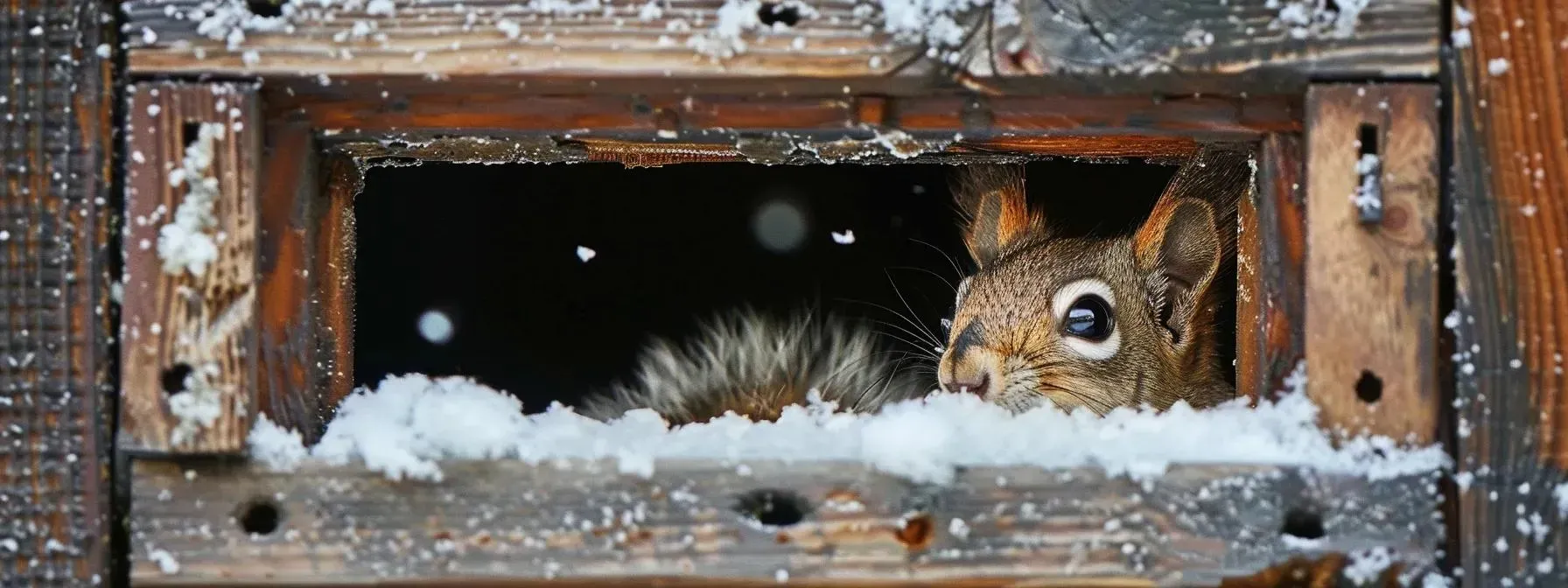

Slide title
Write your caption hereButton
Business Hours
- Mon - Sat
- -
- Sunday
- Closed
Proudly Serving Forsyth County, Gwinnett County, Fulton County, and Dawson County
All Rights Reserved | Catch A Critter



